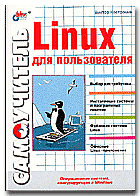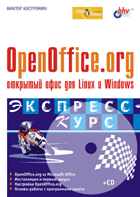Библиотека сайта rus-linux.net
The book is available and called simply "Understanding The Linux Virtual Memory Manager". There is a lot of additional material in the book that is not available here, including details on later 2.4 kernels, introductions to 2.6, a whole new chapter on the shared memory filesystem, coverage of TLB management, a lot more code commentary, countless other additions and clarifications and a CD with lots of cool stuff on it. This material (although now dated and lacking in comparison to the book) will remain available although I obviously encourge you to buy the book from your favourite book store :-) . As the book is under the Bruce Perens Open Book Series, it will be available 90 days after appearing on the book shelves which means it is not available right now. When it is available, it will be downloadable from http://www.phptr.com/perens so check there for more information.
To be fully clear, this webpage is not the actual book.
Next: 13.1 Selecting a Process Up: understand-html Previous: 12.9 Reading/Writing the Swap Contents Index
13. Out Of Memory Management
When the machine is low on memory, old page frames will be reclaimed
(see Chapter 11) but during the process
is may find it was unable to free enough pages to satisfy a request even
when scanning at highest priority. If it does fail to free page frames,
out_of_memory() is called to see if the system is out of
memory and needs to kill a process.
Unfortunately, it is possible that the system is not out memory and simply needs to wait for IO to complete or for pages to be swapped to backing storage so before deciding to kill a process, it goes through the following checklist.
- Is there enough swap space left (
nr_swap_pages> 0) ? If yes, not OOM - Has it been more than 5 seconds since the last failure? If yes, not OOM
- Have we failed within the last second? If no, not OOM
- If there hasn't been 10 failures at least in the last 5 seconds, we're not OOM
- Has a process been killed within the last 5 seconds? If yes, not OOM
It is only if the above tests are passed that oom_kill()
is called to select a process to kill.
Subsections
Next: 13.1 Selecting a Process Up: understand-html Previous: 12.9 Reading/Writing the Swap Contents Index Mel 2004-02-15







![\includegraphics[width=10cm]{graphs/out_of_memory.ps}](/MyLDP/BOOKS/VirtMem/img126.png)